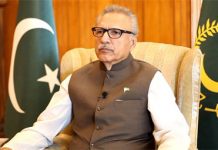Published on: September 1, 2025 10:32 AM

In a former classroom now converted into a relief camp, hundreds of women in Chung, on Lahore’s outskirts, endure exhaustion, pain, and despair as floods devastate eastern Pakistan. Pregnant women, some seven months along, share overcrowded shelters without proper medical care, sanitary pads, or clean clothes, leaving them vulnerable to both physical and emotional suffering.
Waiting for the floodwaters to recede, women describe how basic dignity has disappeared in these temporary shelters. Many sleep in tents tied together with thin sticks, surrounded by mud and stagnant rainwater, while battling pregnancy cramps and menstrual needs without privacy. Their struggles highlight the unequal burden women face in natural disasters.

Moreover, the crisis worsened after heavy monsoon rains swelled major rivers across Punjab, displacing more than two million people. Around 750,000 residents were evacuated, including 115,000 rescued by boats, in what officials called the largest rescue operation in Punjab’s history. However, the growing number of displaced families has stretched limited resources in relief camps.
Inside these camps, women struggle the most with sanitation and healthcare. Menstruation remains a taboo subject, leaving women ashamed and helpless while seeking pads or safe spaces to change. Some are forced to wait until nearby men leave their homes before sneaking in to use bathrooms, exposing how cultural barriers deepen their suffering.
Doctors stationed at makeshift medical camps warn that pregnant women are highly vulnerable to infections and trauma. One young doctor reported treating 200 to 300 patients daily, most suffering from water-borne diseases or psychological distress after losing their homes and livelihoods. The crisis shows how women and children carry a heavier burden during disasters.
Even beyond the floods, maternal and newborn health in Pakistan is already at risk. Every day, 27 women die from preventable pregnancy complications, and 675 newborns die before completing their first month. Now, with medicines and basic supplies running out, women in relief camps describe their situation as “a misery no less than death.








